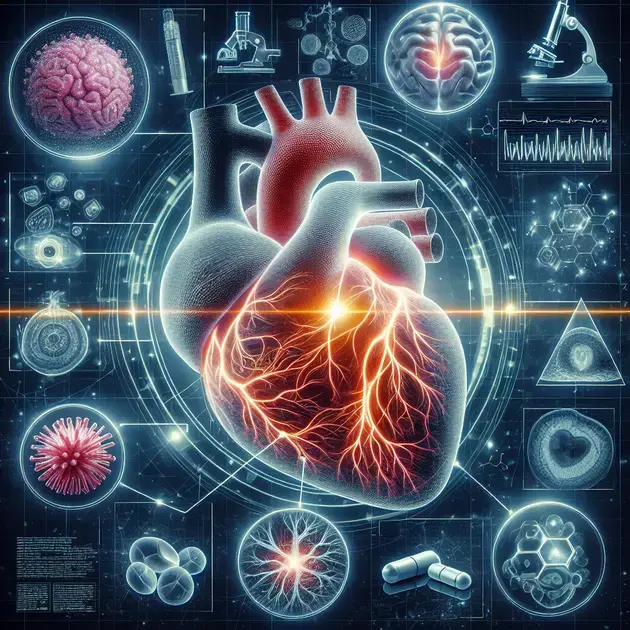New research reveals the heart’s mini-brain and its role in controlling heartbeats
A groundbreaking discovery has found that the heart possesses its own nervous system, known as a mini-brain. This mini-brain plays a vital role in controlling the heartbeat, transforming our understanding of the heart’s complexity. It is now seen as more than just a muscular pump.
Traditionally, the heart has been viewed as a vital organ responsible for circulating blood throughout the body. However, recent studies have revealed its hidden complexity. The heart contains around 40,000 neurons cleverly woven together in a web-like structure, forming its own independent nervous system.
This intricate network of neurons coordinates the heart’s contractions, regulates its rhythm, and adapts its activity in response to various circumstances. It works in tandem with the brain in our heads, communicating and influencing each other through complex neural connections.
Before this research, scientists underestimated the heart’s complexity, believing it solely functioned as a mechanical pump. However, with the discovery of its mini-brain, the heart’s role expands to include regulation and control. This fresh perspective opens up new possibilities for understanding heart diseases and developing innovative treatment options.
The implications of this discovery in cardiology are vast. With a deeper understanding of the heart’s intricate nervous system, researchers hope to develop novel therapies for various heart diseases. By targeting and manipulating the heart’s neural pathways, they aim to regulate heart rhythm disorders, enhance heart failure treatments, and reduce the risks associated with heart attacks.
In addition, this research also bridges the gap between emotions and the heart. Emotions have long been observed to impact heart health, and now, with the existence of the heart’s mini-brain, this connection becomes even more intriguing. By investigating how emotions interface with the heart’s neural system, breakthroughs can be made in managing stress-related heart conditions and improving overall cardiovascular health.
In conclusion, recent research has revealed the hidden complexity of the heart, with the discovery of its mini-brain and intricate network of neurons. This significant finding expands our understanding of the heart’s role in regulating its own activity and communicating with the brain. Scientists are optimistic about the possibility of developing innovative treatments for heart diseases and unraveling the fascinating connection between emotions and heart health.
